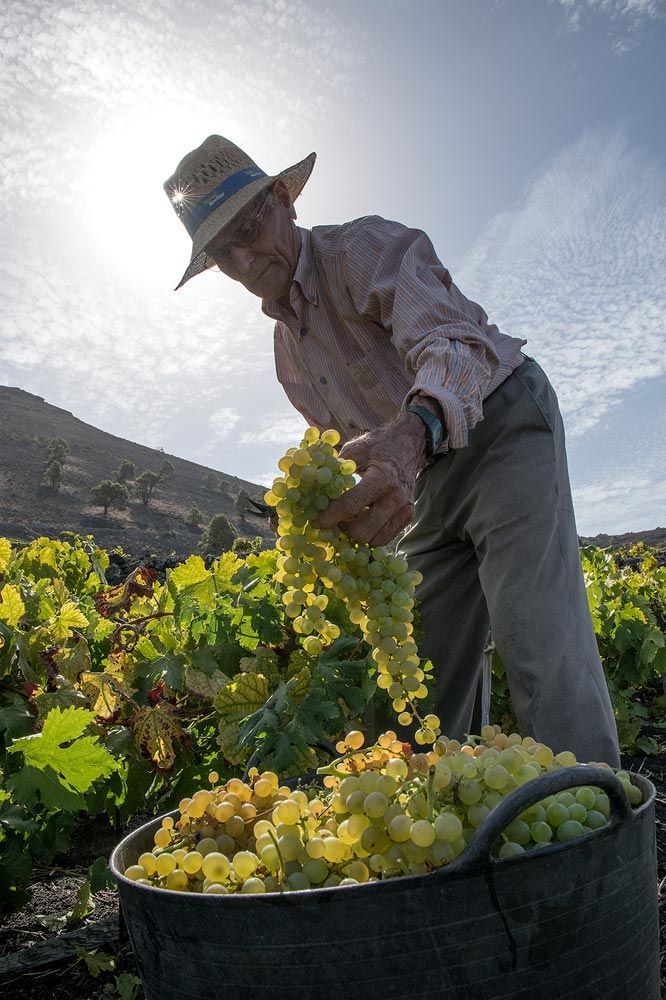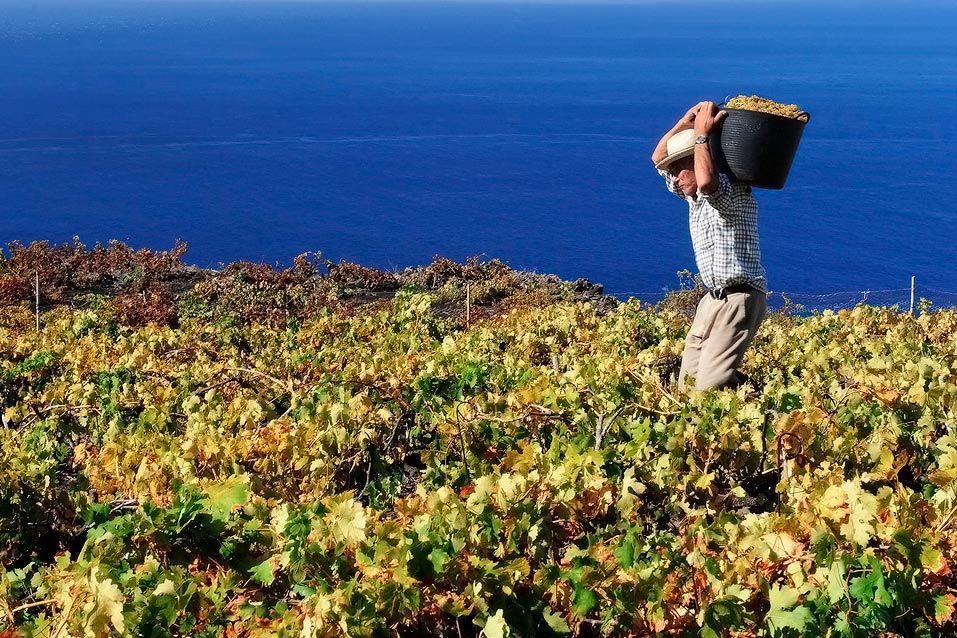ENOTOURISM
Rooted wine tradition, discover malvasía and our wineriesLand of wines among volcanoes
For many generations of the viticulturists has been present in the lands of Fuencaliente, harvesting wines of great recognition throughout the world.


Fuencaliente is the heart of wine, the value of perseverance and the care of the vineyards.
We must go back to the origin, since curiously the variety of Malvasía originates from the island of Crete, spreading to areas of the Mediterranean and introduced in Madeira to later reach the island of La Palma where today it rests in the area of the “Llanos Negros”. Here 80% of this grape is grown on the island, on steep slopes of “picón” of great exceptional beauty.
It was at the end of the 15th century, with the arrival of the first European colonizers, that the local fields received the first vineyards. And among those, some specimens of ancient Malvasia was coming. Barely two hundred years later, the exceptional quality of our wines had crossed borders and was celebrated both in the European Courts and in America. An example, were those sailing ships that arrived in Havana and then on their return, passed through the Port of Everglades, in Florida, where it suggests that after the signing of the US independence act, they would toast themselves with wine from Malvasia from Fuencaliente. In addition, these transatlantic routes passed through the island and contributed to our wines being praised by Shakespeare, which reveals their popularity in England. Later in the 19th century, the romantic poet Lord Byron would also refer to our wines as one of the nectars preferred by the gods.
Our ancestors knew how difficult it would be to cultivate in areas where volcanic eruptions were a risk, but they did not stop cultivating that, after the eruption of the San Antonio Volcano in 1677, modified the land and continued the work to make way for the cultivation of this prestigious variety. The cultivation of this and other varieties is also of great relevance in the Las Machuqueras wine-growing area, a land of aridity that has the exceptionality of being the youngest soil in Spain, as a result of the eruption of the Teneguía in 1971.
It is not only the land or the grape that makes this unique wine unique, but its production method. All the harvesting is done by hand on narrow and steep slopes and then with the art of treading grapes in the traditional wineries they are used in small local wineries. And after completing this delicacy, the winegrower, with great patience and care, his wines are ferments slowly and without any additives.
“He who came to Fuencaliente,
And did’nt drink wine
Came for nothing.”
Wineries
Discover the local winegrowers

Bodega Victoria Torres

Bodegas Teneguía

Bodegas Carballo

Bodega La Casa del Volcán






